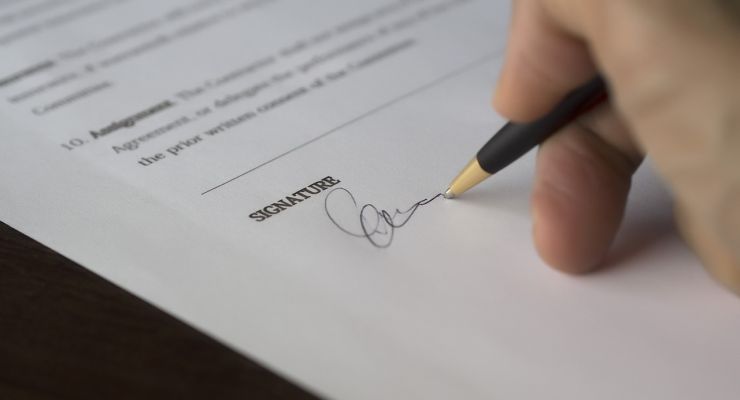
There have been a few stories and anecdotes recently about buyers not closing after agreeing to purchase a home. They made an offer, all conditions were waived or fulfilled, but when it came to closing time, they backed off.
While still a rare occurrence, it’s still prudent to understand what you can do if it happens to you. Where do the seller and buyer stand legally? What courses of action are open to you? We’ve taken a look to help you navigate through these difficult circumstances if they arise. Our most important piece of advice though is that you should seek a legal opinion from your own lawyer or legal counsel.
Why didn’t the deal close?
When a buyer and his/her agent submit an “Agreement of Purchase and Sale”, they are entering into a contract to buy a property so long as the offer is accepted and conditions are met or waived. Once that agreement is “firm” both parties are bound to complete the transaction. The completion of the transaction is referred to as “closing” and occurs on the date set out as the “Completion Date” on the contract (usually one of the terms negotiated as part of the offer negotiation process – 60-90 days from the day the offer is accepted is commonplace).
So, what makes someone renege on the deal and try to break the terms of this contract? Anecdotally, the stories coming out are connected to buyer’s remorse. The buyer made an offer at the time the market was red hot but prices have dipped since then and they feel that they are now overpaying.
That’s the headline-grabbing reason and it certainly fits the profile of sensational real estate reporting. However, there are other reasons why the buyer may not close and problems with financing are the most common and honest reason. It could be that they only had a pre-qualified mortgage – which doesn’t guarantee amounts and rates like a mortgage pre-approval – and then couldn’t get the loan they expected. Perhaps their work circumstances have changed and they can no longer afford the mortgage. It could even be that their offer was based upon the funds they were going to receive from their own property, but a buyer didn’t close with them – setting off a chain reaction of deals that don’t close.
What happens after the deal doesn’t close?
Regardless of circumstances, if a property sale doesn’t close as expected, you need to pick up the pieces and move on.
What happens next depends on how the failure to close has affected you. If you are able to relist your property and sell it on for a similar or larger amount then you will likely be happy to part ways with the initial buyer in an amicable way. That’s because any damages (costs incurred by you as a result of the Buyer’s failure to complete) may be mitigated by the upswing in the price you receive.
However, it doesn’t always work out so smoothly. If there has been a reduction in home prices it may be that you end up selling your home for less than the price you agreed with the original buyer. If that is the case then you can negotiate or sue for the buyer’s deposit and pursue further legal action against them to seek compensation for any additional losses or damages you incurred. Generally, in these cases you need to prove that you have incurred a financial loss, but that should be straight forward because you have clear figures to show. There is also the requirement that you made efforts to mitigate your losses – this is an important factor! Since each case is unique, it is best you discuss such matters with your legal counsel to obtain a true legal opinion.
It becomes a bit more complicated if you do not sell your property reasonably quickly or decide to not to relist the property. You could choose to sue the buyer for your perceived loss. However, as mentioned above, you need to display your financial loss and that is a lot harder to do if you are basing your loss on the estimated value of your property, which is somewhat subjective.
A more complicated scenario is if you were looking to buy a property and were relying on the funds from your sale to finance that purchase. In that situation, you may be unable to close yourself and then find that you are being pursued for losses incurred. Unfortunately, this can get quite messy as it has the potential to affect a number of property sales and it is very hard to untangle the web of responsibility. In these circumstances, we recommend seeking legal advice from a professional who is an expert in real estate law.



